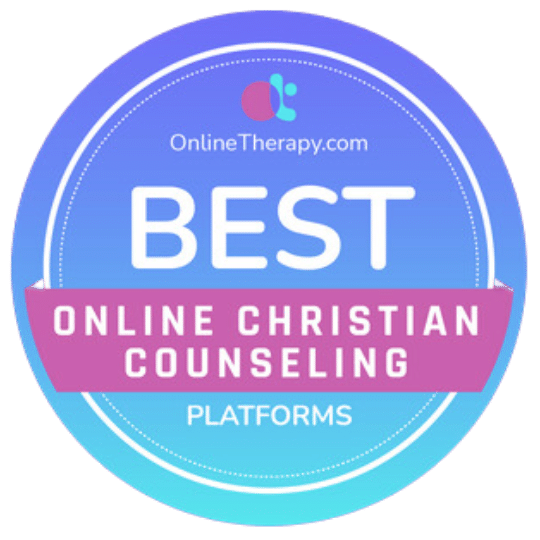STEP 1: Pick Location > STEP 2: Pick a Counselor > STEP 3: Schedule An Appointment
Cognitive Behavioral Therapy (CBT)
Cognitive Behavioral Therapy (CBT) is a promising approach to counseling that can have a huge impact on your happiness and overall well-being.

WE CAN HELP YOU
Understand Cognitive Behavioral Therapy (CBT)
Embarking on a mental health journey is a courageous step towards self-discovery, healing, and personal growth. As you consider setting up your first counseling session, it’s important to understand the potential impact of various therapeutic approaches. One such approach, Cognitive Behavioral Therapy (CBT), has gained widespread recognition for its effectiveness in treating a wide range of mental health concerns.
The dictionary defines it as, “a type of psychotherapy in which negative patterns of thought about the self and the world are challenged in order to alter unwanted behavior patterns or treat mood disorders such as depression.”
Cognitive Behavioral Therapy has proven to be a powerful tool in helping individuals navigate their mental health journeys. By addressing negative thought patterns, restructuring beliefs, and teaching practical coping skills, CBT empowers individuals to make positive changes in their lives. If you’re considering therapy, finding an experienced counselor can be a transformative step towards achieving emotional well-being, personal growth, and lasting change. Embrace the power of CBT and embark on your mental health journey with confidence, knowing that you have the potential to discover new perspectives, build resilience, and lead a more fulfilling life.
Ready to embark on your journey toward improved mental well-being? Take the first step today by finding a qualified online therapist on our website. Explore our diverse range of therapists, read their profiles, and find the perfect match for your needs. Schedule an appointment and experience the transformative power of online therapy firsthand. Start your healing journey today!
Continue reading below for more information on Cognitive Behavioral Therapy (CBT).
What is Cognitive Behavioral Therapy (CBT)
Cognitive Behavioral Therapy is a evidence-based therapeutic approach that focuses on the connection between our thoughts, emotions, and behaviors. It operates under the premise that our thoughts and beliefs influence our feelings and actions. By identifying and challenging negative or distorted thoughts, CBT aims to promote healthier thinking patterns and facilitate positive behavioral changes.
How do I find a Cognitive Behavioral Therapy (CBT) Counselor?
When considering CBT for your mental health journey, it’s important to find a counselor who specializes in this approach. Look for professionals who have received training and have experience in delivering CBT effectively. Seek recommendations from trusted sources, read therapist profiles, and ask questions during initial consultations to ensure a good fit between you and the therapist.
Who can benefit FROM CBT?
CBT can be applied to a lot of different situations, and it benefits a wide variety of people experiencing anxiety, depression, negative self talk, trauma, and so much more.
- Trauma
- Anxiety and depression
- Anger
- Fears and phobias
- Substance abuse
- Much more
How do I find a Counselor Specializing in CBT?
When considering CBT for your mental health journey, it’s important to find a counselor who specializes in this approach. Look for professionals who have received training and have experience in delivering CBT effectively. Seek recommendations from trusted sources, read therapist profiles, and ask questions during initial consultations to ensure a good fit between you and the therapist.
If you contact us today, we’ll help match you with the right counselor based on your wants and needs.
What will a CBT counseling sessions entail?
CBT is a process, and will not “heal” you overnight. Cognitive Behavioral Therapy is a evidence-based therapeutic approach that focuses on the connection between our thoughts, emotions, and behaviors. It operates under the premise that our thoughts and beliefs influence our feelings and actions. By identifying and challenging negative or distorted thoughts, CBT aims to promote healthier thinking patterns and facilitate positive behavioral changes.
Identifying Negative Thought Patterns
CBT helps individuals recognize negative or unhelpful thought patterns that contribute to emotional distress. These thoughts often involve self-criticism, catastrophic thinking, or irrational beliefs. By becoming aware of these patterns, individuals can learn to challenge and reframe their thoughts, leading to more realistic and positive perspectives.
Restructuring Beliefs and Assumptions
Cognitive Behavioral Therapy enables individuals to examine and reevaluate their core beliefs and assumptions about themselves, others, and the world. Often, negative beliefs can hinder personal growth and well-being. Through CBT, individuals can develop alternative, more adaptive beliefs that foster self-compassion, resilience, and positive self-regard.
Developing Coping Skills
CBT equips individuals with practical skills to cope with challenging situations and manage emotional distress. It focuses on teaching specific strategies, such as problem-solving, relaxation techniques, and assertiveness training. These skills empower individuals to effectively navigate life’s difficulties and improve their overall well-being.
Behavior Modification
CBT emphasizes the relationship between thoughts, emotions, and behaviors. By modifying unhealthy behavioral patterns, individuals can experience positive changes in their mood and overall functioning. CBT helps individuals identify behaviors that contribute to their distress and develop alternative, healthier behaviors to enhance their emotional well-being.
Lasting Change and Relapse Prevention
One of the strengths of CBT lies in its focus on building skills that promote lasting change. It provides individuals with tools they can continue to utilize even after therapy has ended. It also emphasizes relapse prevention, teaching individuals to recognize warning signs and implement coping strategies to maintain their progress over time.
What ages are appropriate for CBT counseling?
How does CBT help heal anxiety, depression, and trauma?

WE CAN HELP YOU
find your counselor
When looking for counseling, there are many options available to you–this can be both reassuring and overwhelming. If you’re interested in talking more about EMDR and how it can help YOU, please reach out to our office team.
Match with your CHRISTIAN THERAPIST
Research shows that much of the change people experience during their time in therapy is because they felt heard and understood by their therapist–that their therapist “got them” and that the guidance they gave was relevant and applicable. Because of this, it is critical that you find a therapist whom you can connect with, whom you feel comfortable with, whom you feel “gets you.” Therefore, we encourage you to take a few minutes to read a little about each one of our therapists. If you prefer to look at the counselors nearest to you, please click the office location buttons below. Otherwise, you can meet with any of our Christian Counselors online from the comfort of your own home. If you have questions about any of them, please contact us!
we're here for you
Simply fill out the form and we’ll be in touch soon.

Call or Text Us
Questions or not sure what next step to take? We're here for you! During our working hours you'll likely be able to connect with someone on our admin team immediately.














